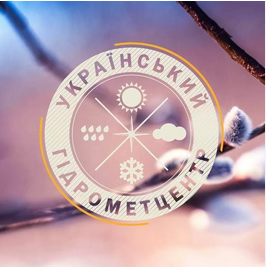
According to Serbian Economist, North Macedonia has become the leading supplier of carrots and beets to Ukraine in 2025
In 2025, Ukraine increased its imports of carrots, beets, and celery by 5.5 times to 43.95 thousand tons, and in monetary terms by 4.6 times to $27.793 million, according to the State Customs Service.
The key suppliers of this group of vegetables were North Macedonia (31.29%), Poland (24.05%), and the Netherlands (13.79%).

Motivair by Schneider Electric Announces New Coolant Distribution Unit Scalable to 10 MW and Beyond for Next-Generation AI Factories
Motivair by Schneider Electric, a leading innovator in liquid-cooling technologies for digital infrastructure, today introduced a new, industry-leading 2.5 MW Coolant Distribution Unit (CDU) designed to reliably cool high-density data centers.
The MCDU-70 model is the highest-capacity coolant distribution unit of any Motivair solution, offering a revolutionary, flexible, and scalable solution to meet the stringent requirements of next-generation graphics processing units (GPUs) and gigawatt-scale artificial intelligence factories.
Using Schneider Electric’s EcoStruxure software, Motivair CDUs operate as a centralized system—meeting today’s cooling needs with the ability to scale to 10 MW+ for next-generation high-performance computing (HPC), AI, and accelerated computing workloads.
Compact and efficient, the MCDU-70 is the latest addition to Motivair’s CDU lineup, delivering powerful cooling without compromise—fully maintaining system flow and pressure performance even at gigawatt scale. Its performance is ideally suited to the needs of large facilities such as the NVIDIA Omniverse DSX Blueprint, where deployments are designed for 10 MW to reach gigawatt scale. At 2.5 MW each, six MCDU-70 units can support a 4+2 configuration with redundancy, and the unit’s capacity aligns with NVIDIA’s GPU roadmap for the near term.
“AI is not slowing down. Our solutions are built to keep pace with the evolution of chips and silicon technologies—delivering next-generation performance exactly when it matters most,” said Rich Whitmore, CEO and President of Motivair by Schneider Electric.
“The success of data centers today depends on the ability to provide scalable, reliable, and energy-efficient infrastructure solutions that meet the requirements of next-generation AI factories. We are meeting this challenge with proven liquid-cooling solutions that scale along with our customers’ needs.”
With the addition of the MCDU-70, Schneider Electric’s full liquid-cooling solutions portfolio now offers CDUs with a power range from 105 kW to 2.5 MW, meeting both current and future performance requirements.
Each CDU is scalable and seamlessly integrates with other Schneider Electric devices and software, delivering a precise and reliable cooling system for data center operators.
The MCDU-70 is now available to order worldwide through Schneider Electric’s advanced manufacturing hubs in North America, Europe, and Asia.
To learn more, visit the website.
Related resources:
About Motivair by Schneider Electric
Motivair by Schneider Electric is a leading global provider of advanced liquid-cooling solutions built to overcome the most complex thermal challenges of modern computing systems.
As a trusted partner to silicon chip manufacturers and server OEM companies, Motivair delivers technologies that enable breakthroughs in artificial intelligence and high-performance computing (HPC), improving data center performance and reliability—both colocation and hyperscale.
From chip to chiller, Motivair offers a comprehensive portfolio of products, systems, and services that support innovators shaping the digital world of the future.
About Schneider Electric
Schneider Electric is a global leader in energy technologies, delivering efficiency and sustainability through the electrification, automation, and digitalization of industry, business, and homes.
Its technologies enable buildings, data centers, factories, infrastructure, and power grids to operate as open, interconnected ecosystems, improving their productivity, resilience, and environmental performance.
The company’s portfolio includes intelligent devices, software-oriented architectures, AI-based systems, digital services, and expert consulting.
With 160,000 employees and 1 million partners in more than 100 countries, Schneider Electric consistently ranks among the world’s most sustainable companies.
Discover the latest perspectives and trends in energy technologies on Schneider Electric Insights.
AI, DATACENTERSOFTHEFUTURE, MAKEAICOOLER, Schneider Electric

Ten Nova Poshta branches in Kyiv (seven on the right bank and three on the left) are switching to round-the-clock operation as Points of Resilience.
“Due to the still difficult energy situation in the capital, we want Kyiv residents to have more places where they can go at any time of the day if necessary. There, you can: charge your phone, laptop, tablet, headphones, power bank, etc.; connect to Wi-Fi; drink tea or coffee and warm up; receive postal services; withdraw cash (without commission — from NovaPay cards); undergo medical procedures that require electricity, such as nebulizer treatments,” according to a message on the company’s Telegram channel.
It is reported that these are the following branches on the right bank: No. 310, 30 Bakynska St.; No. 308, 7-9 Nyzhniy Val St.; No. 543, 16A Khreshchatyk St.; No. 58, 49 Oleksa Tykhoho Street; No. 243, ZA Povitryaniy Sil Avenue; No. 88, 15 Yakuba Kolasa Street; No. 163, 5 Patriarch Mstislav Skrypnyk Street.
Branches on the left bank: No. 19, 25B Raiduzhna St.; No. 52, 3 M. Bazhana Ave.; No. 184, 14B Verkhovna Rada Blvd.

Chinese smartphone manufacturers have notified their partners of an increase in purchase prices, which could result in retail prices for devices rising by 15-30%, with smartphones bearing the new price tags going on sale in March-April 2026.
The most significant price increases are expected in the mid-range and high-end segments, as well as for models with increased built-in memory and storage capacity. Market participants cite the rising cost of components responsible for device memory, primarily RAM and ROM modules, as one of the reasons for the price increases.
The backdrop for the price increase is being formed on the global memory market: due to rapid growth in demand from AI infrastructure, DRAM and NAND manufacturers are reallocating capacity in favor of more marginal solutions for data centers, which is squeezing supply for consumer electronics and supporting the growth of memory prices.
In 2025, Ukraine increased onion imports by 3.2% compared to 2024, to 23.16 thousand tons, and in monetary terms, imports grew by 18.1%, to $29.71 million, according to the State Customs Service.
The largest suppliers of onions to Ukraine at the end of the year were the Netherlands (34.22% of supplies in monetary terms), China (29.68%), and Egypt (12.89%).

On February 1, Ukraine will experience cold weather with temperatures of -20-25°C at night and -12-17°C during the day; in the Carpathian region, Dnipropetrovsk, Donetsk, and Luhansk regions, temperatures will be 15-20° below zero at night and 9-14° below zero during the day; in the southern regions, temperatures will be 9-14° below zero at night and 4-9° below zero during the day; in Crimea and Zakarpattia, temperatures will range from 1-6° below zero at night and during the day (during the day in Zakarpattia, temperatures will be around 0° in some places), according to the Ukrainian Hydrometeorological Center.
No precipitation, except for snow in the southeastern part of the country at night. Roads in some parts of the country will be icy. The wind will be mainly from the north, 5-10 m/s.
In Kyiv on Sunday, February 1, the weather will be cold with no precipitation: temperatures at night will be 21-23° below zero, and during the day 14-16° below zero. There will be icy patches on the roads in some places. The wind will be from the north, 5-10 m/s.
According to data from the Boris Sreznevsky Central Geophysical Observatory in Kyiv, on February 1, the highest daytime temperature was 8.4°C in 2002, and the lowest nighttime temperature was -28.8°C in 1956.
On Monday, January 2, very cold weather is forecast with temperatures of 22-27° below zero at night (in some northern regions -30°) and 14-19° below zero during the day. in the Carpathian region, Dnipropetrovsk, Donetsk, and Luhansk regions, temperatures will range from -17 to -22°C at night and -10 to -15°C during the day; in the southern regions, temperatures will range from -9 to -14°C at night and -6 to -11°C during the day; in Crimea and Zakarpattia, 5-10° at night and 1-6° below zero during the day.
No precipitation, except for snow at night in the far south and during the day in the south-eastern part. Icy conditions on some roads across the country. Winds mainly from the north, 3-8 m/s.
In Kyiv on Monday, very cold weather without precipitation: temperature at night 24-26°, during the day 16-18° below zero. Icy conditions on the roads in some places. Wind from the north, 3-8 m/s.